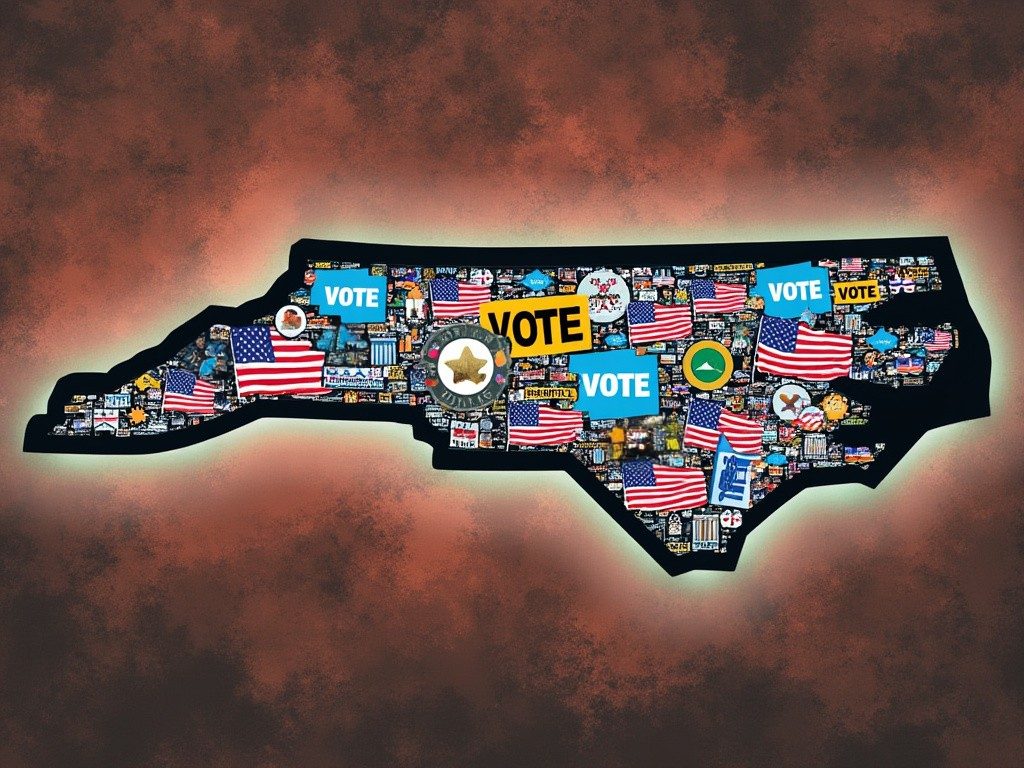The recent changes to North Carolina’s voting rules have raised eyebrows and sparked plenty of debate, with some alleging that Hurricane Helene has provided the perfect cover for altering election procedures in the final stretch before Election Day. Just 10 days before early voting kicks off, the North Carolina Board of Elections announced adjustments to the voting process in the hurricane-hit counties, stirring up concerns over election security and fairness.
Under the new rules, absentee ballot access is expanded, voters can drop off ballots anywhere in the state, and assistance teams will be set up to help with ballot collection. While these moves are ostensibly aimed at helping voters affected by the storm, critics worry that the changes create openings for potential fraud. For example, the ability to drop off ballots statewide raises the specter of inflated voter turnout numbers, especially in counties with a small population. If counties with 15,000 registered voters suddenly report 30,000 ballots, many will be questioning the legitimacy of the process.
North Carolina changes voting rules after hurricane and Mark Elias approves, If Mark Elias approves, Conservatives should be worried
Emergency Voting Changes in North Carolina:
•EASIER ACCESS TO ABSENTEE BALLOTS
•MORE TIME TO APPLY FOR BALLOTS
•DROP OFF ANYWHERE IN THE STATE… pic.twitter.com/q4RXegTKri— ꪻꫝể ꪻꫝể (@TheThe1776) October 10, 2024
These emergency measures also allow poll workers to be brought in from other counties, leaving some to wonder who exactly these workers are and what kind of vetting process they’ve undergone. It’s no secret that rules were changed during the 2020 election due to COVID-19, which sparked its own firestorm of controversy. Now, with emergency voting procedures justified by storm recovery efforts, critics are calling it “weather warfare,” suggesting this is just the latest chapter in a pattern of election interference.
Both North Carolina and Florida have been quick to alter their voting rules post-Hurricane Helene. Florida Governor Ron DeSantis signed an executive order granting election officials the power to consolidate voting centers and adjust mail-in ballot rules. These changes aren’t insignificant: between North Carolina and Florida, there are 46 electoral votes up for grabs—votes that could very well determine the outcome of a close election.
But there’s a flipside. According to Axios, 8% of North Carolina’s voters live in counties hit hardest by Helene, many of them in rural, Republican-leaning areas. For these voters, getting to the polls might be difficult if they’re dealing with flooded homes or storm damage. Emergency rule changes could actually help them participate, but they could also leave room for error or abuse.
Whether these changes are genuinely about easing access or something more sinister, one thing’s for sure: the spotlight is on North Carolina. With both parties keeping a close eye on this key swing state, the stakes are high, and the debates over election integrity are far from over.


Leave a Comment